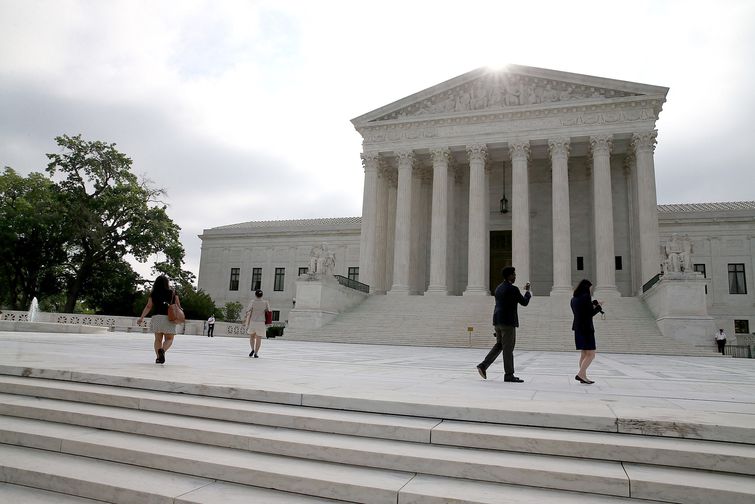The Supreme Court upheld Obamacare's insurance subsidies as legal in a 6-3 ruling Thursday morning.
"Congress passed the Affordable Care Act to improve health insurance markets, not to destroy them," Chief Justice John Roberts wrote in the court's opinion.
The decision means that the Affordable Care Act stands unchanged and that the government can continue subsidizing coverage for millions of Americans.
What did the Supreme Court rule?
The Supreme Court found that the Affordable Care Act expressly meant for all 50 state insurance marketplaces to work identically, regardless of whether they were run by a state or the federal government. Roberts wrote for the majority:
State Exchanges and Federal Exchanges are equivalent—they must meet the same requirements, perform the same functions, and serve the same purposes. Although State and Federal ExIt is implausible that Congress meant the Act to operate in this manner. changes are established by different sovereigns, Sections 18031 and 18041 do not suggest that they differ in any meaningful way.
Obamacare challengers had argued that the language of the law restricted the subsidies to only state-established marketplaces. But the Supreme Court strongly rejected that argument. Roberts wrote that the subsidies are so critical to how the health law works, its impossible to imagine a plausible world where Congress restricted some states' access.
"It is implausible that Congress meant the Act to operate in this manner," Roberts wrote. He later continued that "Those credits are necessary for the Federal Exchanges to function like their State Exchange counterparts, and to avoid the type of calamitous result that Congress plainly meant to avoid."
Why was this case such a big deal?
In King v. Burwell, health law challengers argued that the federal exchange, Healthcare.gov, doesn't have the legal authority to distribute Obamacare tax credits that help low- and middle-income Americans purchase coverage. Since most states rely on Healthcare.gov as their Obamacare marketplace, a decision in favor of the challengers would have a sweeping impact.
In Obamacare's first year, 34 states defaulted to Healthcare.gov, the federally coordinated exchange. An estimated 87 percent of individuals who enrolled through the website are receiving subsidies — the precise subsidies that this court case calls into question.
Without subsidies, private insurance would have become unaffordable for many people who have already enrolled. The Obama administration estimates that 6.4 million Americans currently get financial subsidies through Healthcare.gov.
If the plaintiffs prevailed and subsidies were withdrawn, healthy people would have dropped their coverage, and only the people who are very sick — and therefore very expensive to insure — would keep their plans.
This would have set up the classic insurance "death spiral." By putting coverage out of financial reach for so many people, it would undermine the entire purpose of the Affordable Care Act.


